The Essence of Elephants in Thai Culture
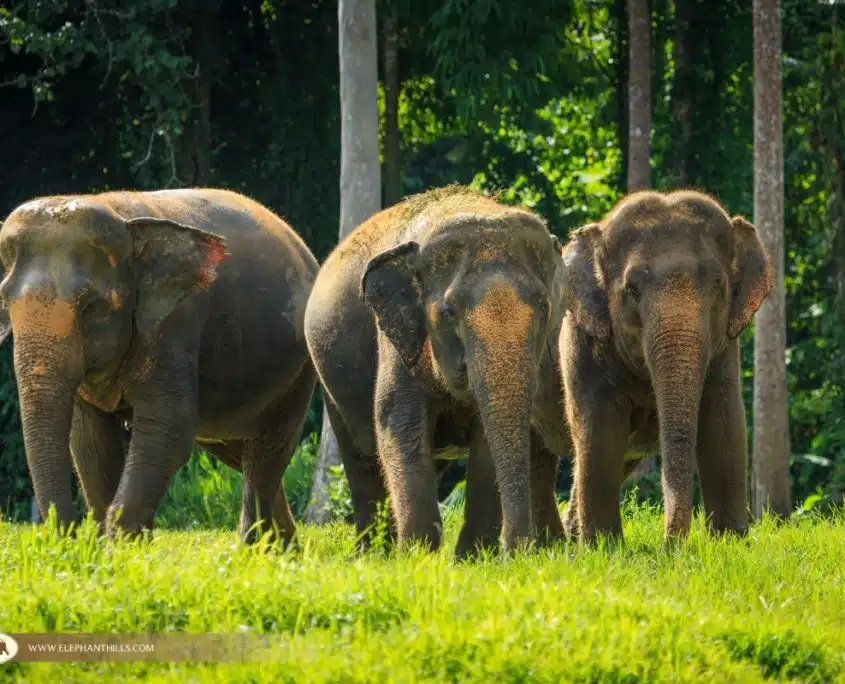
Ethical Elephant Experiences: Thailand and elephants share an inseparable bond that spans centuries. These majestic giants have historically served not only as beasts of burden, but also as symbols of power, grace, and spirituality. Every intricate temple carving, ancient folktale, and traditional parade echoes their significance.
Beyond their cultural and historical roles, elephants in Thailand are now in the spotlight for a different, more pressing reason. The global demand for ethical tourism has illuminated the importance of treating these gentle behemoths with kindness, respect, and dignity. It’s paramount to understand that genuine appreciation involves fostering natural interactions that prioritize the well-being of the elephants.
The Dark Past: Confronting the Reality
As enchanting as the connection between elephants and Thailand might seem, there are shadows cast upon this relationship. Tourism booms in the past have sometimes led to the subjugation of these magnificent creatures, forcing them into unnatural and harmful routines for entertainment.
From being ridden to performing tricks, these practices not only caused physical harm but also affected the psychological health of the elephants. However, the winds of change are blowing. As the world becomes more conscious of ethical considerations, a dramatic shift is occurring, veering away from exploitative practices.
Ethical Interactions: How to Engage Respectfully
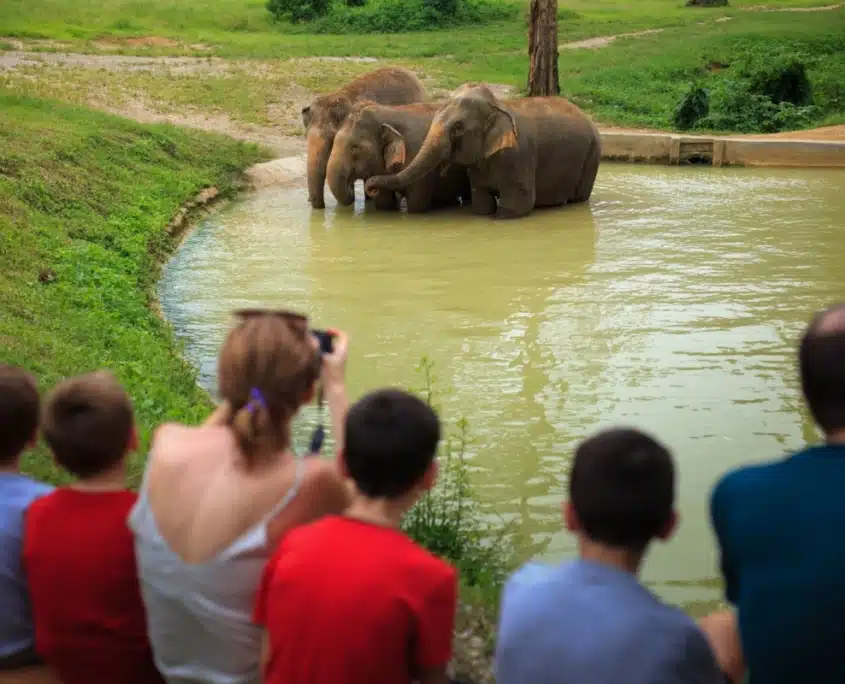
Interacting with elephants is a mesmerizing experience, but it’s vital to do it right. The essence of an ethical elephant experience revolves around observing rather than intruding. Here are ways to engage:
- Observe from a distance: Watching elephants in their natural habitat, and indulging in their daily routines is an experience in itself.
- Feed under supervision: If an opportunity arises, feeding can be a delightful way to interact. However, it’s crucial to do this under expert guidance and with appropriate food.
- Avoid riding: Mounting an elephant might seem like an adventure, but it’s discomforting and harmful to the elephant.
- Educate and Empower: As tourists, the responsibility lies with us to educate ourselves and make others aware of ethical practices.
How Elephant Hills Embraces Ethical Experiences
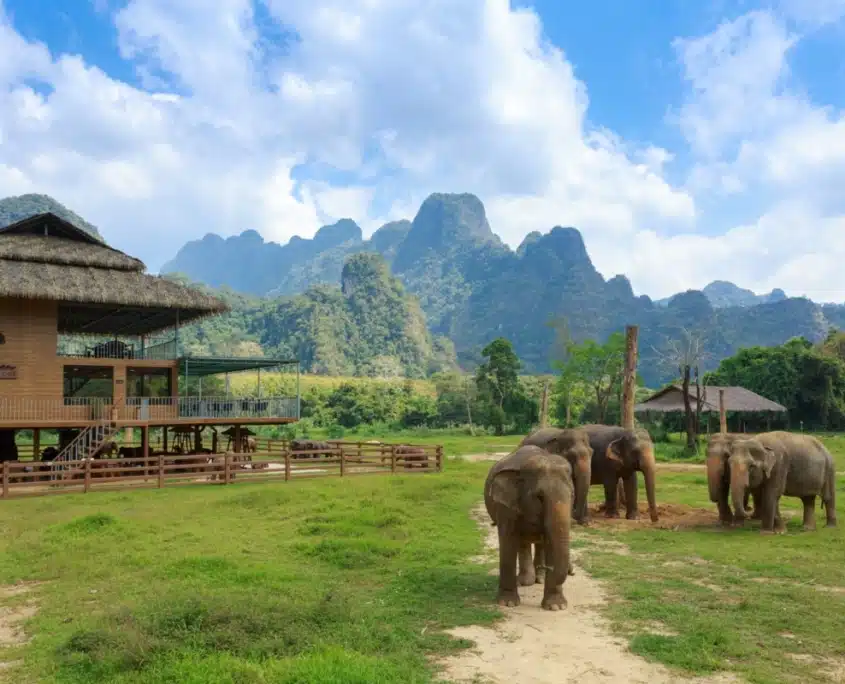
At Elephant Hills, we’ve always prioritized the well-being of these majestic creatures. Our approach is holistic, focusing on providing a conducive environment for the elephants while educating our visitors.
We’ve curated experiences where one can walk alongside these gentle giants, observing them bathe in waterholes or feed on their natural diet. Every element of our program is vetted to ensure it aligns with global standards of ethical treatment.
Additionally, our trained professionals are always at hand, guiding visitors and sharing insights about elephants, their behaviour, needs, and the broader ecosystem. This educational aspect ensures that each visitor leaves with not just memories but also a heightened awareness of ethical interactions.
Be a Part of the Ethical Journey
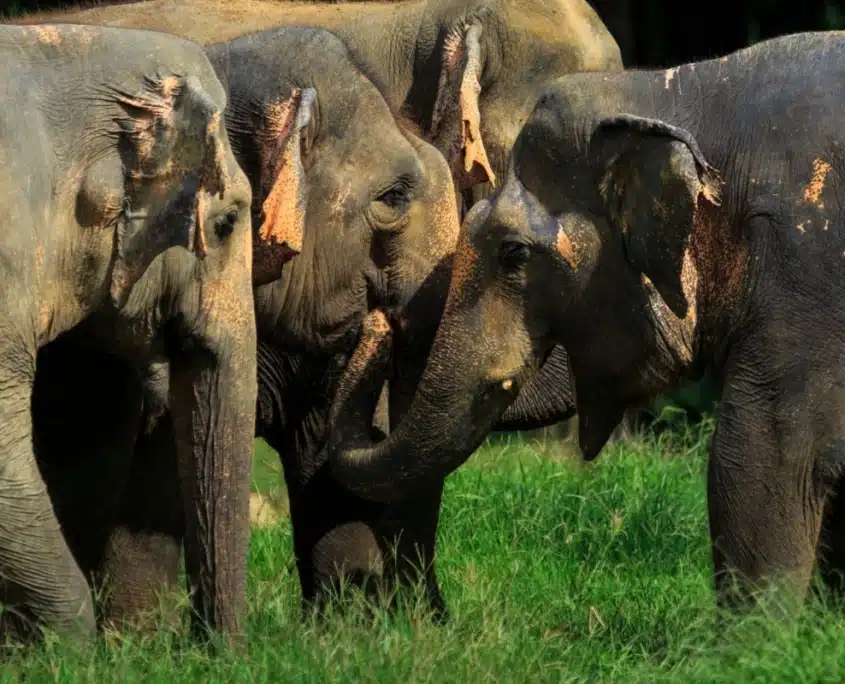
If your heart yearns to meet these magnificent giants and experience their grace up close, join us at Elephant Hills. Here, every moment spent with the elephants is not just an encounter but a lesson in respect, understanding, and coexistence.
By choosing ethical experiences, you’re not just assuring the well-being of the elephants but also fostering an environment that values and respects all life forms. It’s an investment in a future where tourism and conservation walk hand in hand, ensuring that these majestic creatures continue to grace our world for generations to come. Book A Tour Now >>>
The Historical Bond Between Elephants and the Thai People
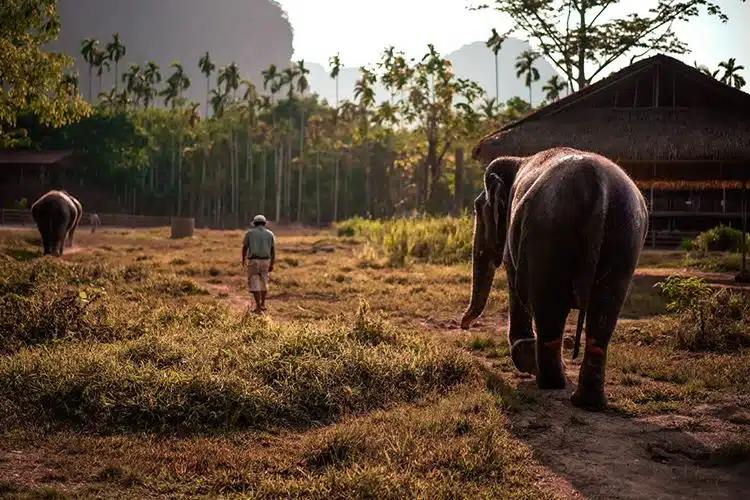
To truly appreciate the shift towards ethical elephant interactions, it’s essential to understand the depth of the bond shared between Thai culture and these gentle giants. Elephants have been central to Thai history, from their roles in ancient battlefields, where they stood as a symbol of royal power and military strength, to their significance in religious ceremonies and folklore.
Buddhist teachings in Thailand often mention elephants, portraying them as symbols of mental strength, wisdom, and serenity. Throughout history, white elephants have been considered sacred and are a symbol of royal power; many Thai kings have gone to great lengths to procure as many white elephants as they could.
Understanding the Needs of Elephants
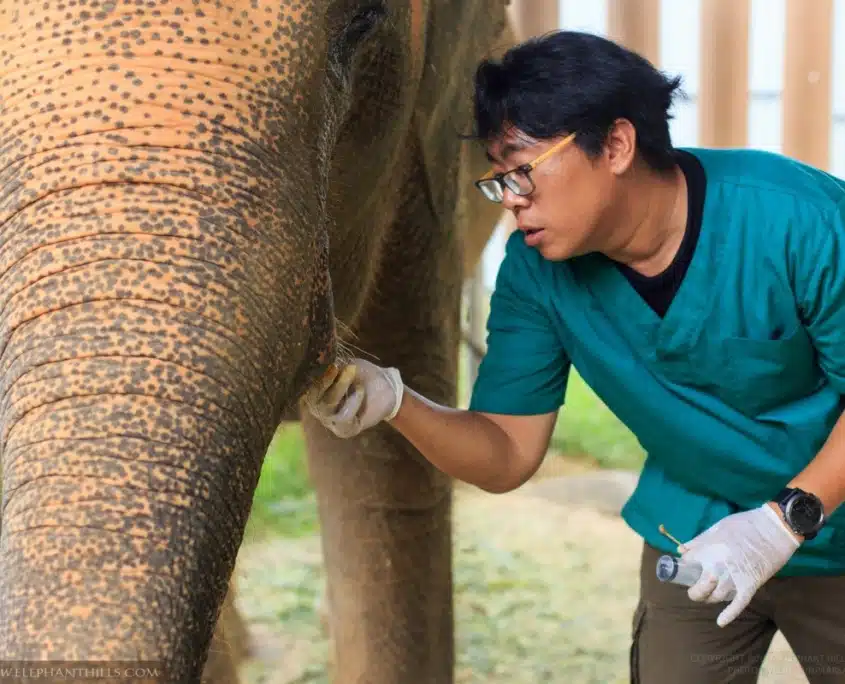
An integral part of ethical elephant interactions involves understanding their needs and behaviours. Elephants are social creatures with complex behaviours and a depth of emotions. They grieve for their lost loved ones, they play, and they have remarkable memories.
In the wild, elephants walk vast distances in search of food and water, ensuring their physical well-being. Their diet is diverse, ranging from grasses and fruits to bark and roots. Therefore, any environment aiming to be ethical must replicate these natural behaviours and provide ample space and a varied diet for these magnificent creatures.
Transforming Elephant Tourism in Thailand
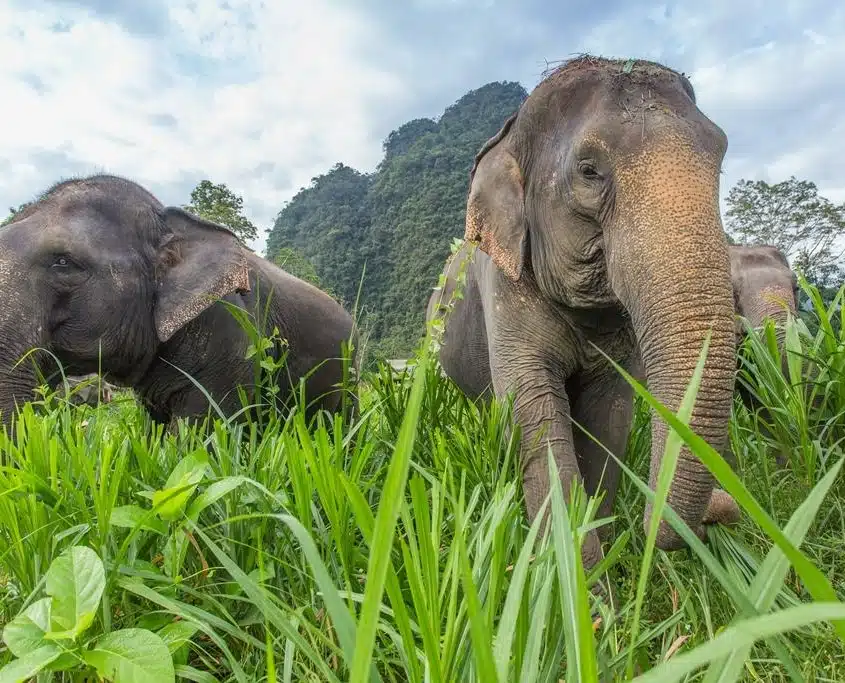
In recent years, Thailand has seen a transformative shift in how elephants are treated in tourist-centric environments. Many organizations now focus on rehabilitating elephants that have faced hardships, offering them vast expanses where they can roam, bathe in natural ponds, and socialize with other elephants.
Elephant Hills is at the forefront of this transformative journey. With a keen focus on education and awareness, visitors are not just offered an experience; they’re given an insight into the life of elephants. By walking alongside them, feeding them under supervision, and observing them in their natural settings, tourists develop a deeper appreciation and connection.
Supporting Local Communities and Conservation

Ethical elephant experiences also play a pivotal role in supporting local communities. Many of the mahouts, or elephant trainers, who once relied on outdated practices for livelihood, are now employed under ethical programs. They’re provided with training that emphasizes elephant welfare, ensuring a symbiotic relationship that benefits both the elephant and the mahout.
Additionally, a part of the proceeds from ethical experiences is often reinvested into conservation efforts. This holistic approach ensures that not only are the elephants cared for, but the entire ecosystem benefits, leading to sustainable tourism.
The shift towards ethical elephant experiences in Thailand is a testament to the country’s dedication to wildlife conservation. As a traveller, choosing such experiences ensures that you’re playing a part in safeguarding the future of these majestic creatures, promoting a harmonious balance between tourism and conservation. At Elephant Hills, we invite you to be part of this journey, ensuring that our beloved elephants thrive for generations to come.
Ethical Elephant Experiences in Thailand FAQ
- What is the significance of elephants in Thai culture?
Elephants share a deep-rooted bond with Thai culture, symbolizing power, grace, and spirituality. Historically, they have been revered, serving roles in traditional ceremonies, and tales, and as symbols in temple carvings. - How did tourism previously affect elephants in Thailand?
Previous booms in tourism led to some exploitative practices, including forcing elephants into unnatural routines for entertainment, such as riding and performing tricks. These actions caused both physical and psychological harm to the elephants. - What constitutes an ethical elephant interaction in Thailand?
An ethical interaction prioritizes the well-being of elephants, focusing on observing from a distance, feeding under supervision, avoiding riding, and continuously educating oneself about their needs and behaviours. - How does Elephant Hills support ethical elephant experiences?
Elephant Hills embraces a holistic approach that prioritizes the well-being of elephants. The experiences curated allow guests to walk alongside the creatures, observe them in their natural settings, and ensure that every interaction is in line with global ethical standards. - Why should tourists choose ethical elephant experiences in Thailand?
By choosing ethical experiences, tourists ensure the well-being of the elephants and support an environment that values all life forms. It promotes a harmonious balance between tourism and conservation, safeguarding the future of these majestic giants.
You might also like…
Thailand’s Cultural Gems: Unveiling Temples, Traditions & Thai Cuisine
Discover the Best of Southern Thailand: Your Guide to Phuket, Koh Samui, Krabi and Khao Lak
Khao Sok National Park – A Jungle Adventure In Southern Thailand
Honeymoon Destinations in Thailand
9 Stunning Examples of Beautiful Rainforest Animals



